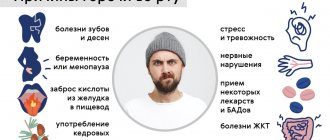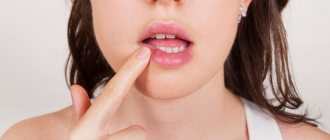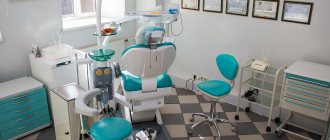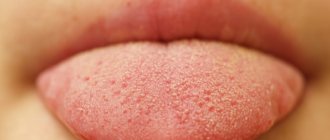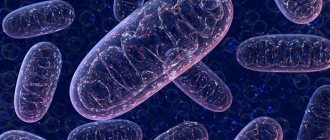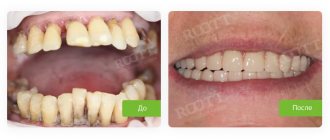Symptoms
Bitterness in the mouth can manifest itself in different ways, for example:
- after overeating and eating certain foods - indicates the reflux of bile into the esophagus and diseases of the bile ducts,
- aftertaste after taking medications means a disruption of the normal microflora, a negative effect on the liver and the destruction of beneficial bacteria,
- after sports training - speaks of liver pathologies.
Bitterness can occur at different times of the day, after physical activity and during the abuse of bad habits. Often the symptom is accompanied by nausea and vomiting, dizziness, heaviness in the side and abdominal pain, white coating on the tongue and a feeling of bloating, heartburn and belching, dry mouth. At the appointment, you need to inform the doctor in detail about each sign.
First aid
Often, a person who finds himself next to a patient does not know what exactly caused the intoxication and what to do in case of drug poisoning. In some cases, the first symptoms can be noticed only a few hours after taking the drugs. But there are several general rules for providing first aid. They are relevant for all severe cases:
- immediately call an ambulance;
- if a person is unconscious, but there is normal breathing and heart rate, it is necessary to lay him on his side;
- If a person is conscious and less than half an hour has passed since taking the medicine, it is necessary to give him a large amount of water and artificially induce vomiting. To do this, you need to press on the root of the tongue. If you do not know what poisoned a person, there is no need to induce vomiting;
- · After vomiting, give the patient a sorbent.
Drug poisoning. First aid for poisoning.
If a person is in serious condition, breathing slows down, the pulse is difficult to palpate, and artificial respiration must be performed. Remember that inaction can have fatal consequences.
It is necessary to show the emergency medicine packaging to the emergency doctors and describe the person’s condition. If you know that a person took alcohol along with the medicine, also tell the doctors about this.
Which doctor treats bitterness in the mouth?
First of all, bitterness in the mouth is considered as a symptom of gastroenterological disorders, so when the first signs appear, you need to make an appointment with a gastroenterologist.
To make an appointment with a doctor, choose any method:
- call the clinic +7 (495) 103-99-55,
- order a call back,
- leave a request for an appointment using a convenient form on the website:
Often people do not pay attention to bitterness in the mouth, explaining the occurrence of the symptom with overeating, an uncomfortable position in bed and some other reasons.
IMPORTANT! Rarely does anyone think that bitterness in the mouth is a signal indicating the development of serious pathology of the liver and gastrointestinal tract.
If you have been experiencing this symptom for a long time, do not engage in self-diagnosis and self-medication - make an appointment with a specialist at the Kuntsevo Treatment and Rehabilitation Center! An experienced gastroenterologist will collect anamnesis, complaints, conduct an objective examination, and refer you for laboratory and instrumental diagnostics to understand the cause of the pathology.
SIGN UP
1.General information
Modern medicine knows a monstrous, incalculable number of clearly defined and described symptoms, i.e. objective signs of a particular disease. At the same time, with the accumulation of statistical data and research results, as well as with the development of the theoretical paradigm, the number of symptoms classified as pathognomonic (this term implies an unambiguous sign that is always observed in a given disease and is not found in any other diseases) is rapidly and steadily decreasing. The tendency to blur the informativeness of diagnostic signs is to some extent promoted by both pathomorphosis (changes in the typical clinical picture of diseases over the years and decades), and the tendency of modern man to self-medicate, which often “blurs” or distorts the symptoms.
There are almost universal symptoms that accompany most known diseases - for example, headache or “general malaise”, i.e. decrease in subjective well-being. Based on these complaints alone, it is impossible not only to make an accurate diagnosis, but even to suggest the field to which it will relate (neurology, endocrinology, virology, and many others). Other symptoms seem to more clearly indicate the most likely source of the problem, but upon closer examination it turns out that not everything is so simple here either. Such “understandable” but sometimes very misleading symptoms include, in particular, bitterness in the mouth.
A must read! Help with treatment and hospitalization!
Treatment methods
Basically, the treatment of bitterness in the mouth comes down to taking medications. The specialist selects complex therapy based on the results of tests and instrumental examinations. The gastroenterologist identifies one of three problems:
- Liver disorders. Means are prescribed to stabilize the operation of the “filter”,
- Digestive tract dysfunction. Drugs that affect the digestive system normalize the work
- Uncontrolled bile production. Eliminated by drugs that affect the level of secretion, for example, anticholinergics.
Treatment of drug intoxication
The basis of treatment is drug withdrawal. Neurological symptoms are of great importance in diagnosing the condition. The drug and its breakdown products are eliminated through all excretory organs: intestines, kidneys, saliva, sweat glands. The main routes of elimination are the kidneys and liver. Toxins are eliminated from the kidneys quickly enough and are eliminated in the urine. The situation is more complicated with drugs that are eliminated through the gastrointestinal tract.
From the liver cells, the breakdown products of the drug enter the bile and end up with it in the intestines, where they can be reabsorbed and delivered to the liver. This process is called enterohepatic circulation of substances. In some cases, harmful substances are excreted from the intestines along with feces. Circulation can result in toxins remaining in the body for quite a long time. This creates a high load on the liver, provokes the activity of liver enzymes and unpleasant symptoms.
But the entry of drugs and their breakdown products into the stomach, as well as their further movement through the intestines, does not pass without a trace. Peristalsis is disrupted, mucous membranes are irritated, and an imbalance of bacteria occurs. For example, many antibiotics have a detrimental effect on the intestinal microflora. Frequent, prolonged use or an inadequate dose can lead to intoxication. You can speed up their removal with the help of sorbents.
It is important to understand that many mild symptoms of intoxication are an attempt by the body to independently remove excess substances. There is no need to interfere with these processes if they proceed in moderation. It is best to provide conditions under which natural cleansing will occur. For example, with moderate vomiting, you should not resort to the use of antiemetic drugs. You should sound the alarm if your temperature rises above 38.5 °C, uncontrollable vomiting that interferes with fluid intake, signs of dehydration and frequent diarrhea.
Treatment of drug poisoning is carried out using several methods:
- gastric and intestinal lavage (according to indications);
- intravenous infusions to accelerate the elimination of toxins, replenish lost fluid due to diarrhea and vomiting. This technique is appropriate for acute forms of intoxication, in a hospital setting;
- prescribing enterosorbents for internal use to bind and remove toxic substances;
- use of enzyme preparations and diuretics according to indications;
- the use of probiotics and prebiotics to restore normal intestinal microflora;
- vitamin therapy and antioxidant treatment to neutralize free radicals.
For chronic intoxications, outpatient treatment is allowed. But it is important to consult a physician to find out the exact cause of poisoning, adjust the dosage of regularly used medications, or choose an alternative.
In the future, you can cope with the elimination of toxic substances with the help of plenty of drinking, a gentle diet, and enterosorbents. One of the effective drugs to combat intoxication is Fitomucil Sorbent Forte. The product contains a plant sorbent, inulin - a prebiotic that promotes the growth of its own beneficial microflora, as well as live bacteria. The drug accelerates the elimination of harmful substances and improves motility of the gastrointestinal tract. It has a gentle effect on the gastrointestinal tract and does not cause bloating or abdominal pain.
Why do we need to treat bitterness in the mouth?
Since an unpleasant taste in the mouth is a symptom of some pathology, a comprehensive examination is needed, without which it is impossible to establish a diagnosis. Our clinic has the latest equipment for ultrasound diagnostics of the liver and gallbladder, gastroscopy, etc., which help identify the pathological process in a short time. Our own laboratory allows you to get test results within a few hours. It is the quick examination process that attracts many Moscow residents to our clinic, as well as experienced, qualified staff ready to help every patient.
Expert advice
When there is bitterness in the mouth, self-medication is the most dangerous. It is believed that the main cause of the symptom is liver disease. Patients begin to make compresses on their own and drink herbal decoctions. Instead of relief, complications occur. The patient is sent to the hospital with severe pain, intoxication, peritonitis, etc. These are the consequences of trying to make an independent diagnosis. It turns out that the cause of the bitterness in the mouth was gallstones. A person independently drinks choleretic decoctions, stimulates the migration of stones, which safely get stuck in the duct and cause an acute attack. Instead of having the crystals crushed under medical supervision, the patient goes straight to the operating table.
Dzhgarkava Tea Gochaevna
Therapist-cardiologist Experience 5 years
There are other, no less dangerous cases. To get rid of bitterness in your mouth, you need to go to the doctor and cure the detected diseases. This is the only right decision.
When to see a doctor?
If the appearance of bitterness in the mouth is not associated with drinking coffee, burnt or poor-quality food, if the bitter taste appears regularly or persists for a long time, if it is accompanied by other symptoms, you should consult a doctor. This could be a dentist, if the bitterness in the mouth is associated with diseases of the teeth and gums, a gastroenterologist, if the cause may be diseases of the digestive organs or biliary tract, a hepatologist, if there are symptoms of liver disease.
Important!
In some cases, you need to urgently seek medical help. If bitterness in the mouth is associated with accidental ingestion of poison, if it appears along with other severe symptoms (difficulty breathing, swelling of the tongue, lips, difficulty swallowing, paralysis, changes in consciousness), you should immediately call emergency medical help.
Reasons for the development of postcholecystectomy syndrome
The causes of postcholicystectomy syndrome and its development are often associated with disruption of the normal functioning of the sphincter of Oddi (orbicularis muscle). The sphincter of Oddi is a smooth muscle that is located in the lower part of the duodenum and is responsible for regulating the supply of bile and pancreatic juice to the duodenum3.
If we consider that PCES most often affects patients who have undergone surgery to remove the gallbladder4, then the mechanism of occurrence of this syndrome can be explained as follows:
- after the operation, the sphincter, which normally opens when the gallbladder is full, does not receive a signal about filling, as a result of which it is almost constantly under tension;
- due to the absence of a bladder, bile enters the duodenum in a diluted state, which increases the pressure inside the intestinal walls. In addition, bile itself has a bactericidal effect and a change in its composition can lead to intestinal infection5.
But sphincter of Oddi dysfunction may not always be caused by removal of the gallbladder. Sometimes the cause of the syndrome is advanced gastrointestinal diseases* (chronic colitis or gastritis, peptic ulcer) and chronic pancreatitis) - a disease of the pancreas, as well as errors in preoperative examination.
Treatment of postcholicystectomy syndrome
Since PCES is not an independent disease, treatment of the syndrome is always determined by its causes. Not knowing how to properly treat postcholicystectomy syndrome can only aggravate the condition and increase unpleasant symptoms.
The principles of treatment for PCES include two key points:
- collection of anamnesis data - the doctor carefully studies old medical reports and records, paying close attention to preoperative diagnostics and the protocol of the operation;
- eliminating the causes of the syndrome;
- prevention and treatment of suspected complications.
Treatment is mainly based on:
- diet therapy;
- drug treatment;
- surgery (according to indications)7.
Together with comprehensive treatment, these measures can reduce the severity of symptoms of PCES8.
Causes of bitter taste in mouth
Bitterness in the mouth can appear due to diseases of the digestive system, teeth and gums, due to changes in hormonal levels, taking certain medications and for other reasons (Fig. 1). At the same time, the accompanying symptoms and conditions under which a person feels a bitter taste in the mouth will be different.
Figure 1. Some causes of bitterness in the mouth. Source: MedPortal
Poor quality food
Foods cooked with a lot of oil, fat or burnt can cause a bitter taste in the mouth. Sometimes the bitter taste is associated with drinking black coffee or very strong tea. It can also appear if a person has eaten sunflower seeds or nuts. The bitterness will go away if you drink cool water, but a slight unpleasant aftertaste may persist for a while. If the bitter taste comes from food, there will be no other symptoms (pain, indigestion).
Age-related changes
With age, a person's taste perception gradually changes. Older people are less able to discern tastes, but may still experience bitterness. This is associated with a number of other health changes, for example, decreased saliva production, dry mucous membranes, and a gradual deterioration in oral health.
Smoking
If a person smokes frequently, they perceive the taste of food less well, and this can increase the bitter taste in the mouth. Also, bitterness in the mouth of smokers may be associated with the taste and smell of tobacco smoke. The resins contained in it linger on the mucous membrane of the oral cavity and settle on the surface of the tooth enamel. This is the cause of bad breath, deteriorating dental health and the associated persistent bitter taste. You can beat it with chewing gum or mints, but it is better to quit smoking or at least reduce the number of cigarettes you smoke.
Pregnancy
In the first trimester, bitterness in the mouth may appear along with other symptoms of toxicosis. It usually worsens with nausea or after vomiting. Fluctuations in estrogen levels can affect the perception of tastes. Cholestasis of pregnancy can also cause bitterness. This is a relatively rare syndrome that develops in the third trimester and is characterized by pruritus and cholestatic jaundice. Cholestasis in pregnancy resolves after childbirth and is considered a relatively harmless condition, but if symptoms appear, you should inform your obstetrician-gynecologist.
Functional dyspepsia
Functional dyspepsia is a disorder in which a person does not have severe diseases of the digestive system, but experiences pain, early satiety and a feeling of fullness after eating, and a burning sensation in the upper abdomen. In this condition, the feeling of bitterness occurs due to slow digestion of food. It may be accompanied by abdominal cramps and other unpleasant sensations. Functional dyspepsia is associated with a number of factors, including stress, smoking, heredity, and recent infectious diseases. You can relieve the bitter taste in your mouth by drinking water with lemon juice. If the condition does not go away or the pain intensifies, diarrhea, vomiting or other severe symptoms appear, you should immediately consult a doctor.
Hepatitis
Bitterness in the mouth is the initial symptom of hepatitis and accompanies liver inflammation. In this case, the bitter taste appears in the morning, immediately after waking up or 30-60 minutes after eating. This is accompanied by heaviness in the right hypochondrium, pain, nausea and vomiting containing bile. With toxic hepatitis, symptoms appear for a short time and disappear after starting treatment. With viral hepatitis, bitterness in the mouth persists almost constantly.
Pathologies of the gastrointestinal tract
If food digestion is impaired, an unpleasant taste appears in the mouth. The sensation of bitterness may occur due to a change in taste perception. It occurs, for example, with pancreatitis and may be accompanied by vomiting and the appearance of a yellow or grayish coating on the tongue. A common cause of bitterness in the mouth is gastroesophageal reflux disease (GERD). In this disease, stomach contents (stomach juice and food particles) regularly back up into the esophagus, causing heartburn and a bitter taste in the mouth (video 1).
Video 1. Symptoms of gastroesophageal reflux disease.
If a person has chronic gastritis or duodenitis, a bitter taste appears when he violates the recommended diet. In diseases of the digestive system, a feeling of bitterness in the mouth is always associated with food intake (appears some time after it).
Biliary system damage
A bitter taste may appear in the mouth due to cholelithiasis, cholecystitis, cholangitis and other diseases of the biliary system (gall bladder and bile ducts). At first, bitterness may appear only after drinking alcohol, fatty or fried foods.
“Burning in the mouth, tongue covered with a yellow coating, discomfort, and so on. In 95% of cases, this is due to the reflux of bile from the duodenum into the stomach. In the stomach, this bile is mixed with hydrochloric acid, thrown into the esophagus and then into the oral cavity.”
Karasev Ivan Alexandrovich
expert
FSBI "N.N. Blokhin National Medical Research Center of Oncology", endoscopist
Without treatment, the condition will gradually worsen. The bitter taste will bother you more often and last longer. Along with it, nausea, pain in the hypochondrium on the right side, and stool disorders may occur. The feeling of bitterness becomes permanent if a severe inflammatory disease of the gallbladder or bile ducts develops (cholangitis, cholecystocholangitis, cholecystitis and others). Also among the possible causes are biliary dyskinesia, due to which the outflow of bile is disrupted, and cholelithiasis. Less commonly, the disorder is associated with parasitic liver disease (giardiasis, opisthorchiasis or echinococcosis).
Dental diseases
The feeling of bitterness can be caused by the presence of tartar, caries, gingivitis or other dental problems. There are usually other symptoms:
- toothache;
- enamel sensitivity (reaction to cold or hot, sweet, sour);
- bleeding gums;
- tooth mobility;
- gums look red or swollen;
- There is a noticeable plaque on the enamel that cannot be removed by regular teeth brushing.
Problems with the health of teeth and gums may be associated with xerostomia, a condition in which insufficient saliva is produced and the mouth constantly feels dry. This increases the risk of tooth decay and gum disease, and causes an unpleasant odor in the mouth, which is perceived as bitter. Xerostomia can occur due to smoking, mouth breathing, aging, diabetes, or autoimmune diseases. This condition requires consultation with a dentist.
Sometimes bitterness in the mouth appears after dental treatment. This may be due to the use of certain medications or materials, or the installation of dentures, braces and other structures in the mouth. If the bitter taste does not go away or persists for several days, you should contact your dentist.
Neurological disorders
The mouth may taste bitter due to damage to the brain structures that process taste information. In this case, taste perception is disrupted: for example, sour foods may seem sweet, salty foods may seem sour, and a person may not perceive some tastes. This can occur after a traumatic brain injury or stroke. Sometimes taste disturbances are associated with Alzheimer's disease and other age-related diseases in which neurodegenerative processes occur.
Complications of pharmacotherapy
There are more than 250 types of medications that can cause taste disturbances, including the appearance of bitterness in the mouth. This can happen if the drug affects the taste buds of the brain, if part of it remains in the saliva and changes its taste, if the drug suppresses the microflora, which is why fungal diseases develop. Among the drugs that can cause a bitter taste in the mouth:
- antibiotics;
- medications for arrhythmia, diuretics, statins and other drugs used for cardiovascular diseases;
- drugs used in chemotherapy;
- muscle relaxants, migraine medications and other neurological drugs;
- neuroleptics, sedatives, hypnotics, antidepressants;
- non-steroidal anti-inflammatory drugs;
- bronchodilators;
- antihistamines;
- antiviral drugs;
- nicotine replacement therapy products.
Rare causes
Sometimes bitterness in the mouth becomes a symptom of endocrine disorders: diabetes mellitus, hypothyroidism, hypocortisolism and others. It can accompany some cancers and respiratory diseases. Rarely, the cause is an infection of the salivary glands. A bitter taste may occur in cases of poisoning due to accidental ingestion of a toxic substance. In all these cases, the appearance of bitterness is accompanied by other symptoms of the underlying disease.
Diagnosis of postcholicystectomy syndrome
Difficulties in accurately determining the causes that led to the development of PCES and the vagueness of the very definition of the syndrome require a thorough examination of the patient. In order to choose the right treatment, it is necessary to clearly establish what led to the appearance of PCES.
That is why effective diagnosis of postcholicystectomy syndrome includes several methods:
- collection of anamnesis data - the doctor carefully studies old medical reports and records, paying close attention to preoperative diagnostics and the protocol of the operation;
- clinical examination of the patient;
- laboratory tests - clinical and biochemical blood test, stool test for protozoa and worm eggs, general urine test;
- ultrasonography;
- endoscopy of the bile ducts;
- Magnetic resonance imaging or computed tomography of the abdomen6.


